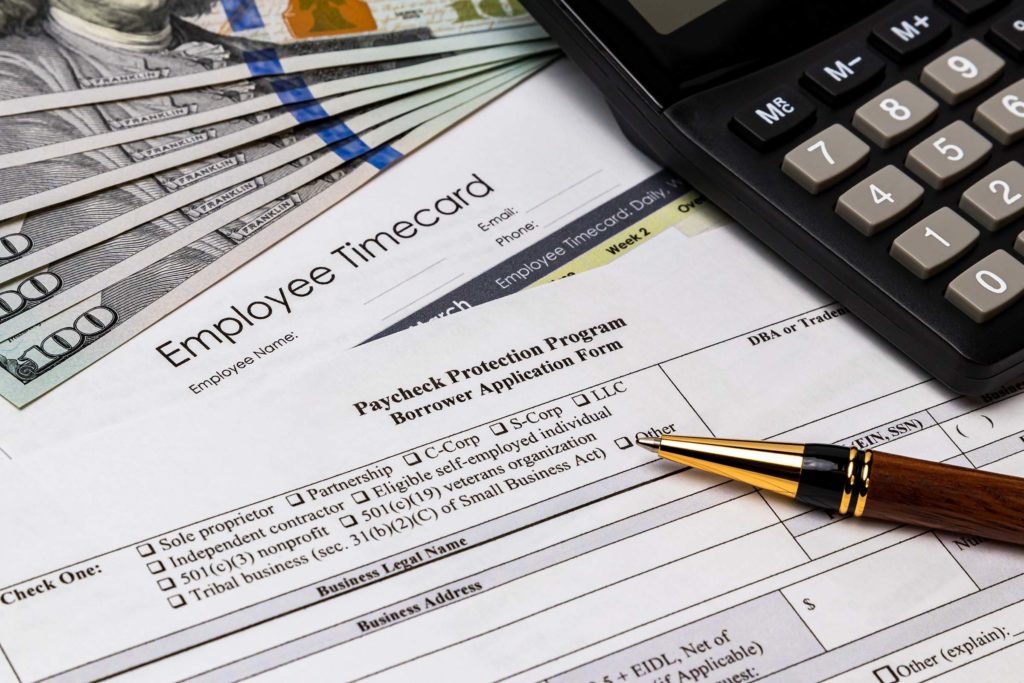News
SBA Issues Guidance Regarding Changes of Ownership for Businesses Receiving PPP Loans
 On Friday, October 2, 2020, the Small Business Administration (SBA) issued guidance setting forth the requirements for changes of ownership transactions involving a business that has received a Paycheck Protection Program (PPP) loan. This has been a gray area since the beginning of the PPP loan program, as changes of ownership, whether structured as stock or asset sales or mergers or otherwise, almost always violate the terms of commercial loan documents and PPP loan documents are no exception. Absent any guidance from the SBA, sellers and buyers have confronted significant uncertainty regarding these technical loan defaults and the reaction of the PPP lender and the SBA to a change of ownership transaction.
On Friday, October 2, 2020, the Small Business Administration (SBA) issued guidance setting forth the requirements for changes of ownership transactions involving a business that has received a Paycheck Protection Program (PPP) loan. This has been a gray area since the beginning of the PPP loan program, as changes of ownership, whether structured as stock or asset sales or mergers or otherwise, almost always violate the terms of commercial loan documents and PPP loan documents are no exception. Absent any guidance from the SBA, sellers and buyers have confronted significant uncertainty regarding these technical loan defaults and the reaction of the PPP lender and the SBA to a change of ownership transaction.
As an initial matter, the new guidance defines a “change of ownership” as any of the following:
- Sale or transfer of at least twenty percent (20%) of the ownership interest of the PPP borrower, whether in one or more transactions (and all transactions since the date of the approval of the PPP loan must be aggregated);
- Sale or transfer of at least 50% of the assets (measured by fair market value) of the PPP borrower; or
- A PPP borrower is merged with or into another entity.
If the PPP loan has been fully paid off, or the loan forgiveness process has been completed and either the SBA has remitted funds to the PPP lender in full satisfaction of the PPP loan, or the PPP borrower has repaid any remaining balance on the PPP loan, no prior SBA approval of the change of ownership transaction is required and no additional steps are necessary, other than notifying the PPP lender prior to closing.
If, however, the PPP loan has not been fully paid off – as will likely be the case in most transactions – the new guidance lays out the requirements for avoiding prior SBA approval of a change of ownership transaction, which vary depending on the structure of the transaction, as follows:
NO SBA PRIOR APPROVAL REQUIRED:
- Sale of equity interests:
- Sale of less than 50% of the equity of the PPP borrower; or
- Sale of 50% or more of the equity of the PPP borrower –
- PPP borrower must complete a forgiveness application; AND
- An amount equal to the outstanding balance of the PPP loan is escrowed with the PPP lender, not to be released until the PPP loan is fully satisfied.
- Even if prior SBA approval is not required, there are post-closing notification requirements to the SBA.
- Sale of 50% or more of PPP borrower’s assets:
- PPP borrower must complete a forgiveness application; AND
- An amount equal to the outstanding balance of the PPP loan is escrowed with the PPP lender, not to be released until the PPP loan is fully satisfied.
PRIOR SBA APPROVAL REQUIRED:
- For all other change of ownership transactions not satisfying the conditions set forth above, prior SBA approval is required.
- PPP lender must submit a request to the SBA detailing the reasons why the conditions set forth above cannot be met, the details of the proposed transaction, a copy of the executed PPP note; copies of the key transaction documents, among other things.
- SBA approval of the sale of 50% or more of the assets of a PPP borrower requires the purchaser to assume all of the PPP borrower’s obligations under the PPP loan.
- SBA will make a determination within 60 days of receipt of all required information.
Regardless of whether prior SBA approval is required, the PPP borrower must notify the PPP lender in writing of the proposed change of ownership transaction and provide a copy of the proposed transaction agreements prior to the closing.
The new guidance does not provide that it is retroactive and is silent as to the penalties for not complying with these new requirements (beyond repayment of the PPP loan). These new rules raise a number of practical questions about the structure of the escrow, the role of the PPP lender in approving the transaction and what criteria the SBA will use in making a determination about whether to approve a proposed change of ownership transaction. Please contact us if you have questions about how these new rules might impact your business.

